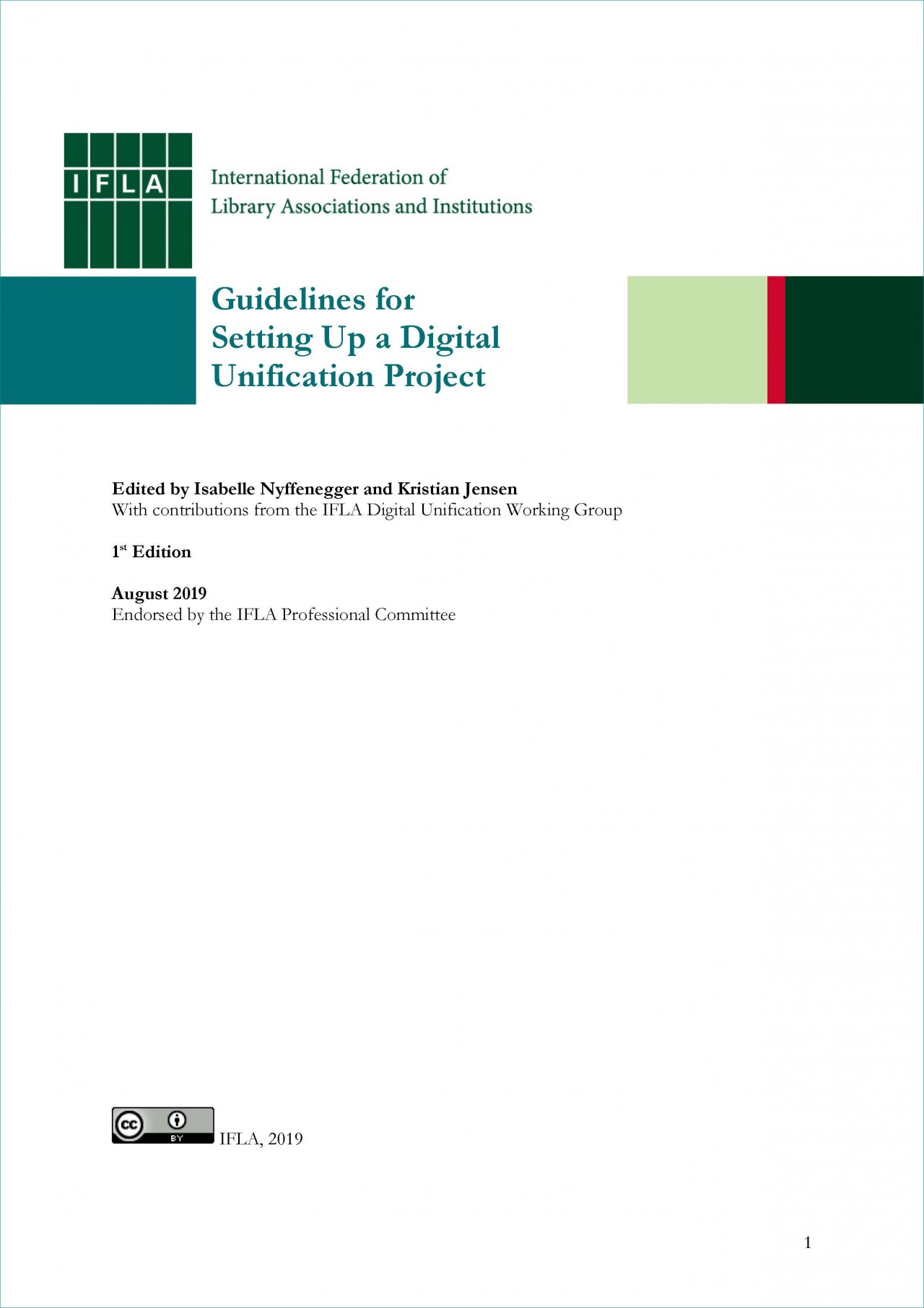Ensuring Access Across Borders, Over Time
27 August 2019
Preserving, maintaining, and giving access to heritage represents a key pillar of the work of libraries worldwide. With the new IFLA Strategy, there is a strong commitment to building IFLA’s work in enhancing professional practice, building connections, and ensuring effective advocacy at all levels.
This work is already underway. At the 2019 World Library and Information Congress, IFLA is launching the guidelines for setting up a digital unification project, as well as first elements of a set of information sheets, answering frequently asked questions in the field of preservation and conservation.
Bringing Together Divided Collections
There are many reasons why collections, or other documents relating to a particular theme, may not all be in the same place. While politically, attention tends to concentrate on colonialism, war and looting, there are also many less traumatic reasons – migrations, the activities of legitimate private collectors, and trade.
What is certain is that the spreading of collections across different sites means that it is less easy for researchers and other users to draw on this work, in order to develop new insights or simply discover cultures.
Digital unification – the digitisation and sharing of digital copies of works held in different sites, often leading to digital libraries – offers one solution.
The new IFLA guidelines look to provide a comprehensive but easy-to-use checklist for anyone setting up such a project. The guidelines were produced by a group of representatives from a variety of IFLA Sections, alongside outside experts, chaired by Isabelle Nyffenegger, the IFLA National Libraries Section and Bibliothèque Nationale de France.
Rather than prescribing specific actions, it focuses on ensuring that all relevant questions have been taken into account, allowing libraries globally to find a way forwards best adapted to their needs.
A Strong Network, a Unique Potential
Through the expertise in its network of Preservation and Conservation Centres, IFLA has a unique asset in promoting effective preservation and documentation of heritage, and access to it by researchers and public alike.
Over the past year, the PAC Centres have been intensifying their work, producing reports and organising training, including in cooperation with each other. They already play an important role in driving and supporting good practices in their roles of expertise and regions.
In order to share this expertise further, the Centres are currently developing factsheets about themselves and the work they do. Organised in the form of a Frequently Asked Questions document, these provide support to library and information workers around the world.
Take a look at what’s already available!